RuPaul: Ultimate Queen
With one mega-hit series under her belt, a new one about to launch, and a just-released album, RuPaul has never been more in demand

What a difference seven years can make. A few weeks before his headlining performance at Capital Pride 2009 — the same year Barack Obama was inaugurated and RuPaul’s Drag Race premiered on Logo TV — RuPaul Charles was full of optimism about gay rights and the country’s future.
“We’re amazing people. We can do so much,” the world’s leading drag celebrity told Metro Weekly. “Young people that I know, there’s very little shame in their game and that’s diminishing. That makes me feel very optimistic about the future.”
But now? RuPaul is skeptical. “It’s been my experience and my observation that humans on this planet feel more comfortable with fear rather than love and openness,” he says. “I’m not trying to be a downer. But I’m always cautious of what humans are capable of doing.”
RuPaul’s more world-weary outlook comes with a reticence — refusal, even — to wade too deeply into sensitive discussions. Politics and relationships (“I have my relationships, and it’s all good”) are off-limits. Instead, RuPaul prefers to focus on his work. And there does seem to be a lot of it these days.
In 1993, RuPaul made his mark as the first drag queen to become an international pop superstar — working the music runway with the album Supermodel of the World. His devotion to music hasn’t waned. RuPaul is still very much a recording artist, having just released his 10th music album, Butch Queen.
But these days, the 55-year-old has become arguably an even bigger star thanks to his work on television. This Monday, April 11, RuPaul debuts a new celebrity trivia game show, Gay for Play, set to become another franchise for Logo, the LGBT-focused channel whose biggest hit has been RuPaul’s Drag Race, now in its eighth season. Drag Race launched international careers for many of its top contestants, including Alaska Thunderfuck, Sharon Needles, and Bianca del Rio, but it’s also contributed to raising awareness in drag, inspiring new drag performers to elevate the artform worldwide. The show was also part of the impetus behind RuPaul’s DragCon, a drag-focused convention currently gearing up for its second annual event next month. It’s expected to draw thousands of drag enthusiasts to the Los Angeles Convention Center.
All of that work is keeping RuPaul from another visit to D.C. “Every year I want to come for the cherry blossoms,” he sighs. “But, you know, I have to work.” There is, of course, one obvious saving grace to skipping Washington: It makes it easier to avoid politics — and those determined to talk about it. Even the temptation of talking about Trump wasn’t enough to get RuPaul to throw some shade on this year’s election. Instead, the man who coined the phrase “sashay away” had a retort that was deliciously sharp-edged and sassy: “You want to talk about Obama and Donald Trump? Everybody talks about that shit. You’re talking to fucking RuPaul!”

METRO WEEKLY: Let’s start with your new game show, Gay for Play.
RUPAUL CHARLES: The vision for the game show was to really emulate what it’s like in my house when I have people over. I love playing games that stimulate the mind. I’m not good at games that involve numbers, but I like psychological games where you have to mine a person’s intellectual DNA. That’s what interests me. I like to play Dirty Charades and Spotlight and Risk, Taboo, all those kinds of games. I grew up watching all these game shows that seemed like so much fun, with celebrities really being there all day, shooting several shows a day. And throughout the day they got crazier and crazier.
MW: Way before Gay for Play of course, came Drag Race, now in its eighth season. Did you anticipate that it would last this long and have such an impact?
RUPAUL: Show business is a very, very tough business. You don’t expect anything to really work. When it does work, it’s very surprising and it’s very exciting. But most things don’t work. I’ve done a lot of things in these thirty-some-odd years of jumping up on stage, and most things don’t connect with the public.
So no, I didn’t expect it to last this long, but I knew that I enjoyed it, and I love doing it. I love drag, I love the art of drag.

MW: Drag Race has had a huge impact on the broader culture, at the very least in the growing acceptance and popularity of drag queens.
RUPAUL: I try not to think about the broader culture and what influences it. I just do what I do, and I have fun, and that’s it. That’s how I approach everything. I mean, the broader culture is very excited about Donald Trump. What does that say about the broader culture?
Drag queens will never be accepted. And acceptance isn’t what drag wants. Other people may want acceptance — drag does not. Drag, its purpose is to remind the culture to not take itself too seriously. Our creed is, don’t take life too fucking seriously. Most people do not understand what that means. But drag breaks the fourth wall and makes fun of all the things that we in our culture take so seriously. So that’s why it’ll never be mainstream, because most people can’t understand the concept of looking at themselves from a different perspective.
That’s why drag is so dangerous. Drag has always been punk rock because it challenges identity. It says to identity, “Ha! Now I’m something completely different. Look at me now, I’m dressed as this.” And our culture doesn’t really understand or have room for that. Everybody has to fit into a certain box — you’re in that box, and you’re in it for the rest of your life.
MW: So even with the increased exposure of drag, you don’t feel like it’s become more accepted or understood?
RUPAUL: No. People say, “Oh, ha, ha, that’s funny. I’m not threatened by it,” but they don’t understand the bigger importance of it and how it relates to them. How everybody on this planet is actually in drag, but most people don’t even know it. That’s why it’s so revolutionary, because it challenges identity. And in an ego-based culture, identity is king. And so to challenge that is to be punk rock.
MW: If we broaden the scope of LGBT acceptance, we now have marriage equality nationwide. Are you optimistic about progress in gay rights?
RUPAUL: I’ve been around for a long time. I’ve seen trends ebb and flow. I’ve seen progress and I’ve seen regression, not just in gay movements, but in all types of movements — whether it’s gender or sexuality or race. All kinds of different movements. And humans are fickle. Humans are very trendy. And they’re posers. If some economic change happens, it can all go to shit, honestly. And I’ve seen it happen in my lifetime. So do I trust that this is what it is and it’ll stick forever? I’m skeptical and I’m cautious.

MW: Is that due to the current political climate? The conservative right in particular seem eager to reverse any progress we’ve made.
RUPAUL: I don’t really do the politics. I think the most important politics are personal politics. What an individual feels from the inside out. And that’s where real change happens. It happens on a personal level.
I remember when Marianne Williamson was going to run for Congress here in California, and I asked her why. The impact she has on a personal level is far more important and far more reaching than she could do in some stodgy, bureaucratic committee. Personal politics is really what it’s all about. You change the world on a personal level, by changing yourself.
I have no faith in politics or Washington. I don’t look to them to determine how free I am, or how I view myself as equal. Because they will never get it. They don’t have the software or the hardware to understand what that’s really about.
MW: Switching gears, what was the inspiration behind your new album, Butch Queen?
RUPAUL: Butch Queen is me paying homage to the strength of drag queens. If you read George Orwell’s Animal Farm, it really chronicles the way humans behave in a revolution. They start it with the idea of freedom or equality, and then essentially, over time, forget what the purpose was. And they end up wanting to just assimilate into what the status quo was. What they were rebelling against in the first place. And in different times, people start walking on their hind legs like the pigs in Animal Farm and they forget where the strength came from. Their true colors come out over time. Another part of that is that people end up forgetting why they had a revolution in the first place. It becomes very clear that people really just want [what they had before]. The new boss, same as the old boss.
I’ve said this before, drag queens are like the Marines of the LGBT movement. We suit up, we show up, and we’re always ready to serve. And we don’t get that credit.
MW: Did music come first for you?
RUPAUL: The creativity comes first. It’s all part of the same. I love, love, love being creative. In fact, when I was a kid, alone in my room, I was creating things. And they’re all an extension of my love for creativity. Whether we’re in the producer’s room at Drag Race, or putting together a TV show, a game show, or doing an album, it’s all part of the same creative process. And drag allows me to do that. I’ve used drag as my vehicle to get my creativity out there.
MW: Does it ever get overwhelming to keep up with changes in society or technology and the many new ways to get your creativity out there?
RUPAUL: Well, social media is a big element to the television show, and all of the different projects. And I’m involved in Facebook, Twitter, Instagram, and Tumblr. All that kind of stuff. But it’s all part and parcel of the bigger picture. And it’s just the way business is done today.
I’ve always been a hard worker, and I’ve always done lots of different things at the same time. It’s not overwhelming. I just get it done. I wouldn’t say — I’m not a person who is very social. I get out and I socialize with the people that I work with. But I guess if I required more extra time to take my kids to soccer, or go and have dinner with friends, it would probably be overwhelming. But because I don’t do that at all, I have time to work on my business.
MW: You’ve helped create stars out of Drag Race. Do you have a favorite?
RUPAUL: I am the mother of the queens, so to speak, so I would never say if I have a favorite in public. I do have favorites, but I would never say it out loud. I love them all.
MW: It must be satisfying to know that you’ve created a whole kind of cottage industry.
RUPAUL: Well, I’m very proud of the fact that our show has launched careers of 100 queens. The queens had audiences before, but this show has exposed them to an international audience. Of all the things I’ve done, I’m the most proud of that.
MW: Plus, with the tours, they actually get to see that international audience.
RUPAUL: Actually, the girls are on a tour right now around the world. It’s called RuPaul’s Drag Race Battle of the Seasons. The show is seen in, I think, 180 countries. Something crazy like that.
I traveled around the world before I started doing the show. I toured for 30 years. I don’t really tour any more, because my responsibilities are here in Hollywood. And we actually have the world come to us here in Hollywood. We have RuPaul’s DragCon, which is a huge, huge convention that people from around the world come to. And that’s exciting because with social media, everyone gets to interact with the girls — but at RuPaul’s DragCon, they actually get to meet them in person. And in essence, they get to meet their tribe. And I think that’s so important, to be able to face-to-face meet kindred spirits.
MW: What do you see for the future, both that of your business and of drag in general?
RUPAUL: I don’t have a vision for it. It will be what it is. Like I said before, there are windows of openness in our culture. And then our culture closes those windows down just as fast. And I’ve seen it in my lifetime, time and time again. Right now I’m enjoying the freedom that we all have. But it could really all end. What happened in Germany in the early ’30s, no one could have imagined that — except for the people who had lived through that kind of thing before. And it’s all cyclical. So we have a certain freedom now. And I’m not just talking about gay people. I’m talking about everyone. We have a certain freedom now. But that could all change in a heartbeat. And I’m not trying to be a downer. But I’m always cautious of what humans are capable of doing.
Drag is doing great — I’m excited for it right now. But I know the reality is that, things change. And in the late ’70s, it was disco and people were open. Straight men were dancing — everybody was open. It was a sexual revolution, the women’s movement was happening. Gay rights was happening. It changed, overnight. In a culture, you can choose fear or love. It’s been my experience and my observation that humans on this planet feel more comfortable with fear rather than love and openness. So the future of drag? Who knows what it is. I do know what history tells us about humans. And humans, they actually don’t feel very comfortable with openness and freedom. They really don’t. Which explains a lot about what’s been happening lately.

MW: Given you have so much going on, do you ever take vacation?
RUPAUL: I just came back from a two-week vacation in Australia. Just for sun and fun.
MW: I guess that helps to recharge your batteries for work.
RUPAUL: Yeah, and I’ll get away for weekends from time to time. Like a three-day weekend and stuff. But I like to work. It keeps me invigorated. And engaged.
MW: Is there anything you haven’t done that you have your sights on?
RUPAUL: I would love to design clothes, and make a line of clothes and housewares and accessories. I’d love to do that.
MW: To become the next Martha Stewart.
RUPAUL: Well, I don’t know about that. But there are certain things over the years that I’ve loved, and I’ve paid attention to things that really work — in terms of the human body, and how effective they are. And I’d like to try my hand at recreating them.
MW: Is that in the works or is that more at the conceptual stage?
RUPAUL: Everything’s in the works. My whole career, I’ve had an idea, or a feeling, or a sense, and I walk in that direction. And sometimes those things take several years to actually come to fruition. Sometimes they happen in a heartbeat. But the fact that I said it out loud is really the first step in making it happen. Is it going to happen? I hope so. I don’t know when. But it’s something that I haven’t done yet, and that’s something I’m excited about.
MW: You’ve been working with Michelle Visage now for decades, as well as your lead producers, Fenton Bailey and Randy Barbato of World of Wonder Productions. I guess you find it helpful to have a core base of friends and coworkers.
RUPAUL: Well it absolutely helps because it cuts down on a lot of the discussion time. We understand each other. We can finish each other’s sentences. And that’s why Drag-Con is so important. Because it’s important for young people to find their tribe. And that’s what I set out to do when I left home at fifteen. I wanted to find my people. And I did find them. And I’ve continued to work with them because we have a certain shorthand language. When you find your tribe, stick with them. Stick with them. Because they are your key to finding yourself.
On this planet, we’re working with yin/yang, AC/DC, male/female, black/white. It’s a planet of duality. So to just find the center space, to find the balance, you need to meditate, you need to find that in stillness. When you first start out as a human on this planet, you feel like you can get that balance through artificial means. And that works for a while. But ultimately, that balance has to come from the inside out. And it comes from the stillness. And meditation and yoga, breathing — anything that can help center and balance you.
So the important work here on this planet is to know thyself. Know thyself. I didn’t come up with this. This is not a new theory. Every ascended master you would study, would tell you the same thing. Find out who you are. Find your frequency. And when you find your frequency, then you will know what you have to offer to any given situation. Find your voice. That’s the most important thing you can do.
Gay for Play, starring RuPaul, debuts after RuPaul’s Drag Race on Monday, April 11, at 10 p.m., on Logo. Visit logotv.com for more information.
Butch Queen, is now available on iTunes, Amazon, Spotify and other retail and streaming sites. RuPaul’s DragCon is set for Saturday, May 7, and Sunday, May 8, at the Los Angeles Convention Center. Visit rupaulsdragcon.com for more information.
RuPaul’s Drag Race Battle of the Seasons tour stops Saturday, May 21, at 9 p.m., at the 9:30 Club, 815 V St. NW. Tickets are $37.50. Call 202-265-0930 or visit 930.com.
Support Metro Weekly’s Journalism
These are challenging times for news organizations. And yet it’s crucial we stay active and provide vital resources and information to both our local readers and the world. So won’t you please take a moment and consider supporting Metro Weekly with a membership? For as little as $5 a month, you can help ensure Metro Weekly magazine and MetroWeekly.com remain free, viable resources as we provide the best, most diverse, culturally-resonant LGBTQ coverage in both the D.C. region and around the world. Memberships come with exclusive perks and discounts, your own personal digital delivery of each week’s magazine (and an archive), access to our Member's Lounge when it launches this fall, and exclusive members-only items like Metro Weekly Membership Mugs and Tote Bags! Check out all our membership levels here and please join us today!




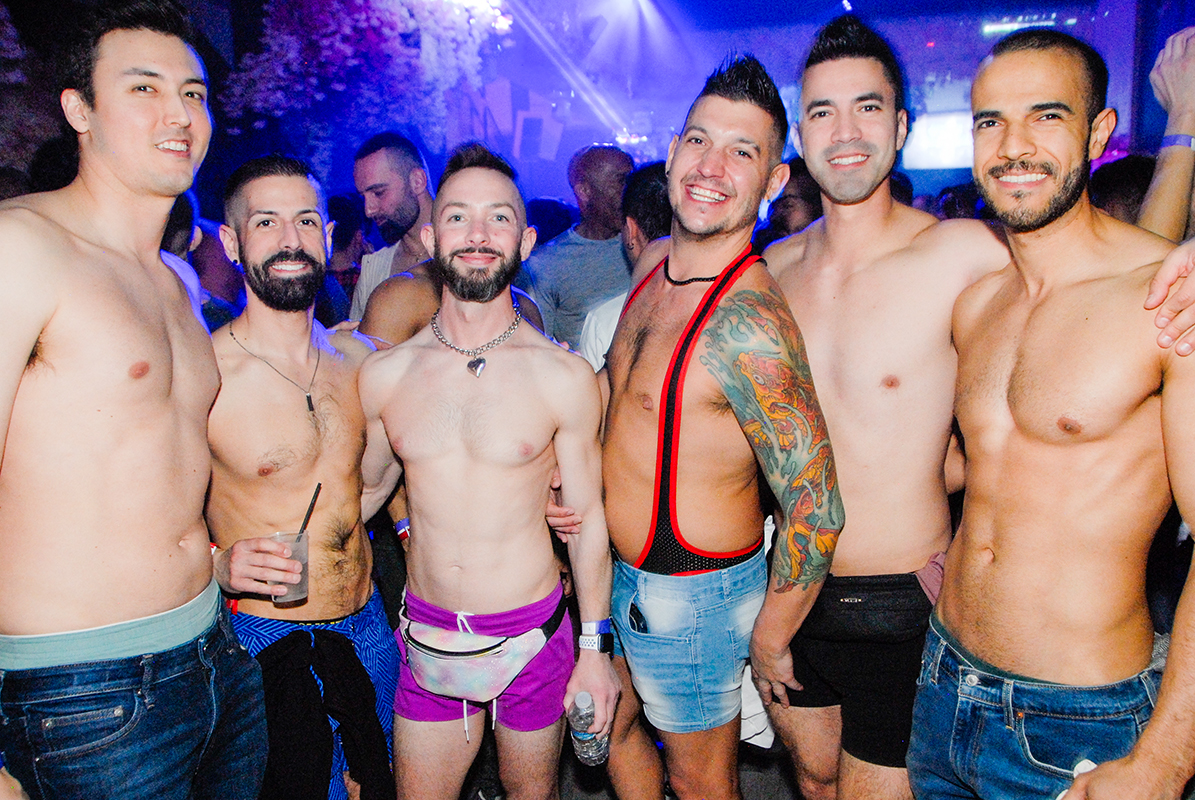

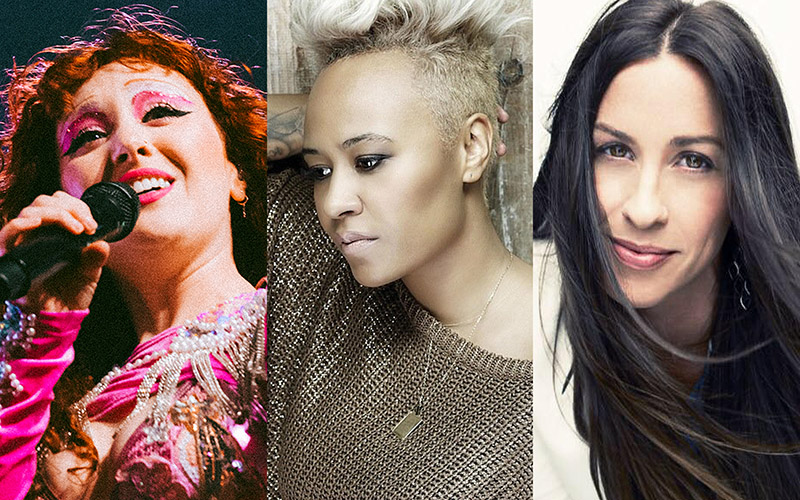












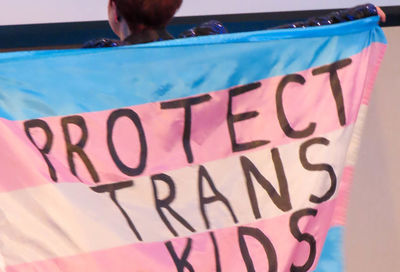
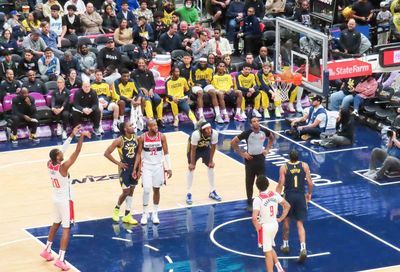
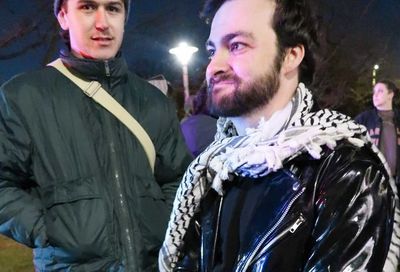
You must be logged in to post a comment.